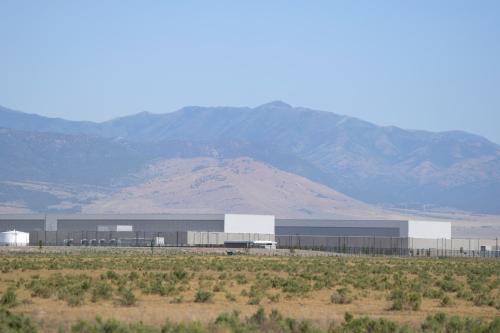Promoting opportunity for all workers has become a defining challenge for metropolitan regions throughout the United States, including Central Indiana. In recent years, this region has added jobs at a faster rate than just about any other in the Midwest. At the same time, however, trade and technology shocks have claimed many of Central Indiana’s middle class jobs, leaving some workers and families worse off.
Central Indiana is hardly alone. New technologies and fierce trade competition are rapidly reshaping regional economies throughout the country and the access to opportunity they provide.
This report considers ways in which Central Indiana can advance economic opportunity by focusing regional economic growth and inclusion strategies on “Opportunity Industries”—the industries that concentrate the region’s good jobs and promising jobs. Good jobs provide middle-class wages and benefits. Promising jobs are entry-level jobs that, while they do not provide the pay or benefits of a good job, enable the workers who hold them to reach a good job within 10 years.
The central findings from this report emphasize that Opportunity Industries are a critically important focal point for efforts to expand and support the middle class in Central Indiana:
- Central Indiana needs more good and promising jobs than it provides, especially for its workers who do not have a bachelor’s degree. About 264,000 of Central Indiana’s jobs are good or promising jobs held by workers who do not have a bachelor’s degree—enough for only about 35 percent of these workers. Another 239,000 jobs are good or promising jobs for high-skill workers who have at least a bachelor’s degree—enough for 73 percent of these workers. The remaining 524,000, or 51 percent, of Central Indiana’s jobs are neither good nor promising, meaning they provide insufficient pay or benefits and no viable career pathway to a good job. Read more about finding one on page 28 »

- Focusing economic development strategies on the opportunity industries that concentrate Central Indiana’s good jobs and can help close its opportunity deficit. Industries that are core to the region’s economy, including advanced manufacturing, professional services, life sciences, and logistics, concentrate the region’s good jobs—for workers with and without a bachelor’s degree— and help fuel its growth through innovation and trade. Adding jobs and connecting workers to these industries can help advance opportunity and prosperity in Central Indiana. Read more about finding two on page 31 »

- Preparing workers for good jobs may require new approaches to education, workforce development, and career pathways. Few people who are able to obtain good jobs start in a similar occupation. In fact, 75 percent of Central Indiana workers who do not have a bachelor’s degree will switch between completely different types of occupations to obtain a good job. These career switches are crucial to adapting to evolving labor market demand and should be encouraged through renewed focus on life-long learning, retraining, and career counseling. Read more about finding three on page 42 »

- Connecting people to promising entry-level jobs and training programs—especially women and people of color—is essential for advancing opportunity. Education is an increasingly important determinant of a person’s chances of obtaining a good job. Yet educational attainment remains lower among blacks and Hispanics in Central Indiana. Meanwhile, even workers with the same level of education face different chances of obtaining a good job based on their race and gender. Read more about finding four on page 50 »
Addressing the challenges highlighted by this report will require new and coordinated solutions from the fields of economic development, education and workforce development, and from state and local policymakers:
- Economic development has an opportunity to bend the region’s growth curve to provide more good jobs by prioritizing opportunity industries.
- Additionally, the public and private sectors must work together to improve job quality and career pathways to good jobs.
- Current and future workers of all backgrounds need education and training solutions that prepare them for today’s more changeable and dynamic labor market.
- Finally, working parents need better supports that make it easier to raise a family while they work to reach the middle class.
Read more about the implications on page 57 »
Central Indiana possesses many enviable advantages U.S. regions require to achieve inclusive economic growth and prosperity, including its considerable economic momentum and civic capacity. Leaders in this region are already working together to marshal and coordinate these advantages to expand economic opportunity for more workers and families. This report identifies strategies and tactics leaders in Central Indiana—and leaders in other regions facing similar trends—can pursue to address these challenges.
The Brookings Institution is committed to quality, independence, and impact.
We are supported by a diverse array of funders. In line with our values and policies, each Brookings publication represents the sole views of its author(s).








